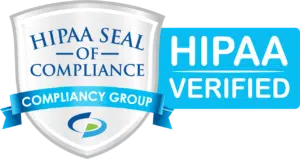In today’s highly-saturated home care market, many agency owners are looking for ways to distinguish their services from those of competitors. But doing so is easier said than done. For example, slashing rates may seem like an obvious way to attract clients. But the strategy is unsustainable over time.
So, if price distinction isn’t a good tactic, what practical steps can industry leaders take in order to differentiate and add value to their services? This is the big question many are asking. Fortunately, there are good answers.
Here Are 7 Simple Ways Home Care Agencies Can Add Value to Their Services
1. Hire for “Attitude”
It may sound cliché to stress the importance of hiring friendly employees. It seems like a no-brainer! But it can’t be over-emphasized in the stressful and service-oriented world of caregiving.
Care delivery is fraught with challenge, and even “nice” people can have their patience challenged. It’s important that workers—both caregivers and office staff—keep level heads and positive attitudes at all times.
Agencies are wise to incorporate candidate screening practices that assess for attitude and stress tolerance. Just one negative employee can destroy a company’s reputation and damage relationships with clients and referral sources!
2. Conduct Quality Assurance (QA)
Some home care agencies have existing QA programs in place, while others are focused on different objectives. Either way, QA should be a top priority for all company leaders. Even existing programs may need updates.
Ideally, QA will honestly gauge both client/family experiences and agency reputation with referral sources. It’s also important for companies to provide QA tools that encourage honest feedback. Clients and community members may sugar-coat responses if asked face-to-face by a friendly agency representative.
3. Offer Basic DME
No company can stay in business by “giving away the farm.” It’s unreasonable to expect home care agencies to provide expensive items free of charge. However, some durable medical equipment (DME) is relatively affordable.
An agency that provides clients with inexpensive DME finds tremendous value-add ROI. Latex gloves and adult briefs don’t cost a fortune, but securing them may be inconvenient for home-bound clients and busy families. Many will be very grateful to an agency that supplies them as a courtesy!
4. Serve as Hospital/Facility/Doctor Liaisons
Home care agencies can also provide low-cost value to clients by serving as “liaisons” to hospitals, facilities and doctors’ offices. Really, doing so makes perfect sense. The typical home care client is someone who lives alone or with a spouse who also suffers from mental/physical limitations.
By helping to coordinate doctors’ appointments and communicating with hospital social workers, home care agency staff serves in the client’s overall care management. This extra assistance is usually appreciated by concerned (and busy) family members who often live elsewhere. It’s also a great selling-point for referral sources!
5. Partner with Ride Sharing Services
Uber and Lyft are ubiquitous these days. Many people of all ages regularly use ride-sharing services in lieu of taxis or other transportation methods. However, some seniors are far removed from technology and can’t secure their own rides.
Forward-thinking home care agencies can partner with ride sharing companies in order to streamline the process for clients. Basically, agency staff can hail the ride on behalf of a needy senior. Companies with 24/7 on-call can really sell the service as a solution in times of non-medical emergencies or urgent transportation needs!
6. Adopt Client/Family-Friendly Technologies
Many caregiver agency owners feel overwhelmed by the endless stream of sales pitches from new technology companies. It seems everyone is trying to tap into the booming senior-care market, and home care agencies are a prime target. However, some of these new platforms can actually add value to clients and families.
Agencies must vet technologies to determine potential usefulness. However, in general, applications that improve family communication may serve as value-adds. Software and phone apps that help to prevent medical emergencies should also be prioritized. Among these are remote patient monitoring (RPM) and virtual care solutions.
7. Provide Flexible Payment & Billing Options
Flexible payment and billing options are an often-overlooked value-add that resonates with many clients. Some may desire to pay their bill monthly, since they rely on the benevolence of a relative who wires money on a predetermined schedule. Others cover home care costs courtesy of a structured payment (annuity, pension, etc.).
Similarly, many clients desire payment method options. Agency accountants may not like the fees associated with credit cards. But the option is particularly helpful for families that help to manage an aging loved-one’s finances!
Conclusion
At the end of the day, savvy leaders know they can never rest on their laurels. Caregiver companies that become stagnant over time ultimately peter out. Business owners must constantly work to find client value-adds in order to stay relevant in a world of increasing competition. Fortunately, some of the best distinctions are easy to implement and affordable!
If you’re a home care agency seeking world-class marketing solutions for rapid growth, you should also consult with the industry’s best option today!













